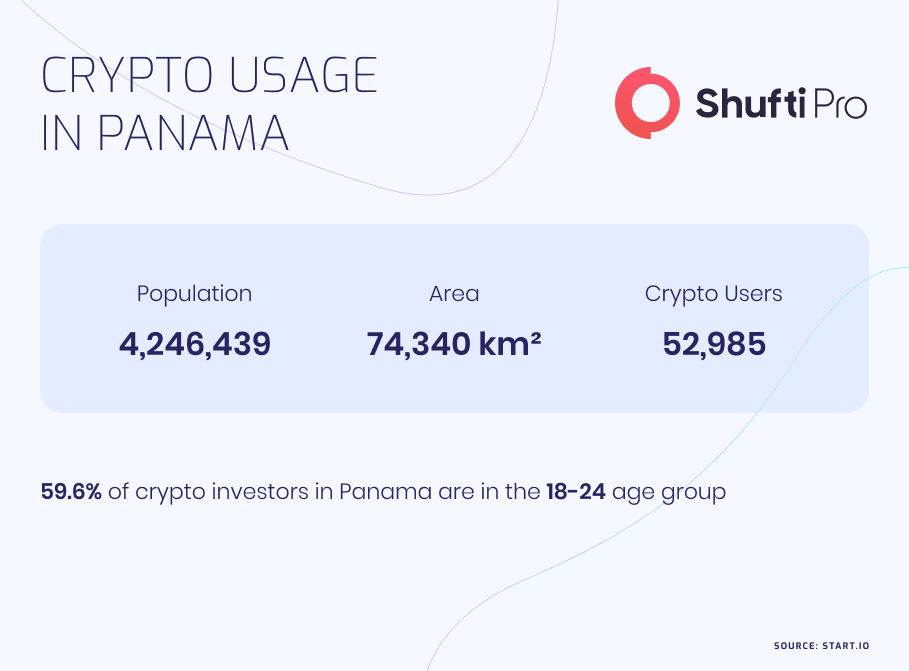Panama Moves Forward With New Crypto Bill – A Step Towards Legalizing Digital Assets

Cryptocurrencies have been around for a decade now. As new technologies are emerging, criminals are becoming more sophisticated and keeping the peace to find new ways to manipulate financial systems through money laundering. Digital currencies are still a long way to compete with fiat currencies in terms of volume and value being laundered across the globe. Particularly, criminals seek anonymity, privacy and money, but not necessarily in that order. while cryptocurrencies can offer all of these attributes. This is why, digital currencies are becoming one of the most favorite means for criminals to hold, transfer and wash illicit gains.
However, criminals are making use of the lack of control and laws over cryptocurrencies in many regions across the globe. Over the past months, there have been a significant number of instances where the money launderers used various innovative techniques to route illegal gains. Many of the criminals have been put behind bars, however, what has come to light could be the tip of the iceberg.
Insight into Panama New Crypto Asset Bill
A few months before, on April 28, 2022, the National Assembly of Panama passed a bill permitting public and private use of cryptocurrencies. However, it was approved by 38 members of the assembly, with no votes against it. This is why it’s expected that the country may become the third country in the world to give the legal status as fiat currency. In addition to this, to enforce the bill, it needed to be approved by President Laurentio Cortize. However, being in favor of the bull, the President refused to sign any bill before strict anti-money laundering checks were added.
The cryptocurrency Asset policy was created to simplify the transactions for Panamanians; half of them don’t have any accounts in the legal financial system. If the new bill passes, the citizens will be able to use digital wallets and make payments through cryptocurrencies more easily. In addition to this, congressman Gabriel Silva also said that the new bill will be able to provide favorable conditions for international companies, backing Panama to become an attractive hub for innovation and technology in Latin America.
On another hand, the bill will also allow the use of cryptocurrencies, it specifically states that it’s not mandatory for companies to accept digital currencies as payments. This is one of the key differences between El Salvador adopted in September 2021 and Panam’s crypto-asset law. This strategy will help to overcome the risk of scandals that El Salvador experienced after legalizing Bitcoin in the country, for example, people being paid by cryptocurrencies without their consent. Therefore, the cryptocurrency laws that work in the country aim not to limit or impose any obligations on companies, but rather provide innovative options for transactions within Panama.

Legalized Cryptocurrencies
The crypto asset bill is created while streamlining it with the other Panamanian regulations to prevent monopolization in crypto policies. However, it is formed to cater for the wide scope of cryptocurrencies that would be accepted for transactions, including non-fungible tokens. However, as Bitcoin is the first and largely used cryptocurrency, Panama’s crypto-asset bill doesn’t limit itself to it. Instead, it allows different types of digital assets Bitcoin, Ethereum, Litecoin, Stellar, XRP, XDC Network, IOTA, Algorand, and Elrond.
In addition to this, they would also permit the tokenization of precious metals, provisions and payment systems. This means the legal right associated with them will also be converted to digital formats.
The Reason Behind The Unsigned Crypto Bill
The president of Panama, Laurentino Cortizo, has given a statement that he will not sign the new crypto asset bill unless a rigid set of antimony laundering checks are not included to reduce the risk of money laundering. However, approval is a must to have to pass the bill and make it a law. The President’s dissatisfaction has to do with how well the bill adheres to AML laws tailored to crypto regulations across the globe.
Cortizo also made the stand and said that money laundering is one of the major concerns that could put the country’s reputation at stake. The President believes that the bill is innovative, but crypto-asset usage requires global regulations. The country’s financial system is quite a syringe and is looking forward to the regulations for digital currencies. This is because Panama is being placed on the Financial Action Task Force (FATF) ‘s list of countries with strategic deficiencies in curbing financial crimes including money laundering and terrorist financing.
Furthermore, in case the President digresses from the FATF’s recommendations, Cortizo can’t back down from the promise to put the task force’s guidance into practice and increase monitoring of money laundering activities.
Way of Regulating Cryptocurrencies in Panama
Just like EI Salvator, one of the first countries that adopted crypto as a legal tender, Panama is ready to develop a distinctive digital wallet that will enable people to use cryptocurrencies safely. This new digital wallet will allow citizens to use the crypto wallet to pay fees, and taxes and fulfil other financial obligations. As per Silva, it will lead to “faster, more efficient, and transparent processes” across the country.
Government and financial watchdogs will regulate crypto to make sure the digital currency is not used for illegal activities. Just like traditional payment means, crypto will be subject to AML procedures, which will be carried out according to the regulations recommended by Financial Action Task Force (FATF). Concern over FATF fines against Panama is the main reason why Panama’s President is not ready to sign the current bill.
How Shufti Can Help
To secure the operations and curb the instance of financial crimes associated with cryptocurrencies, businesses need to have robust anti-money laundering and transaction monitoring control systems in place. These practices are not only made mandatory by the global financial watchdogs including FATF, FINTRAC, etc but have shown proven results in the real world as well. However, as the criminals are getting more sophisticated to exploit the business’s security systems, companies need to invest a handsome amount in the appropriate AML/KYC solutions to stay put with the regulatory obligations and reduce the risk of financial penalties.
Shufti’s Anti-Money Laundering (AML) screening allows cryptocurrency firms to stay compliant with regulatory standards as well as prevent money laundering. Powered by thousands of AI algorithms, Shufti’s AML screening solution runs background checks on customers against 1700+ global watchlists in less than a second with 98.67% accuracy.
Want to learn more about our AML Screening solution?











